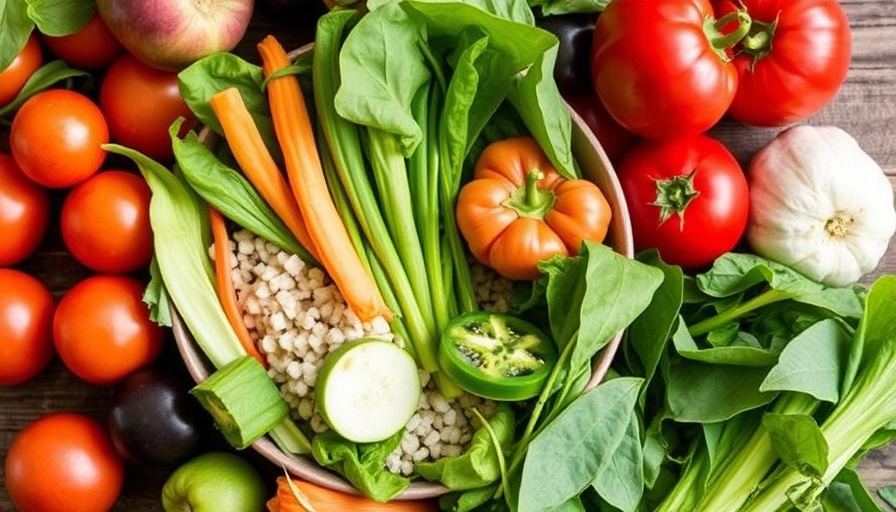
The Rise of Plant-Based Diets: A Growing Trend
The number of Americans adopting a plant-based diet has soared from 12.1% in 2019 to 25.8% in 2022, a trend influenced by health consciousness and environmental values. As more people recognize the nutrition benefits of incorporating more plant foods into their diets, it raises an important question: What are the aspects that make this way of eating desirable, and how can one transition successfully?
Understanding Plant-Based Eating
Many misconstrue a plant-based diet as a complete exclusion of all animal products. However, it primarily emphasizes the consumption of fruits, vegetables, nuts, seeds, whole grains, beans, and legumes, with animal products allowed in smaller quantities. This flexible approach allows for variations such as the Mediterranean diet, which incorporates fish and dairy, resonating with diverse dietary preferences.
Health Benefits Behind the Trend
Research supports various health benefits associated with predominantly plant-based diets. Consuming ample plant foods is linked to a lower risk of chronic diseases, improved heart health, weight management, and potentially increased longevity. For those with conditions like type 2 diabetes, a plant-forward diet may facilitate better blood sugar control, presenting a holistic approach to health. These findings echo reports from various studies, including assessments of diet quality in the Global Nutrition Report, indicating that many diets currently fail to meet the standards for health and sustainability.
Challenges of Transitioning to Plant-Based
Notably, with 90% of Americans falling short of daily vegetable intake, the shift towards a plant-based diet can be daunting. Research shows that many still struggle with everyday dietary choices, making the transition appear overwhelming. Yet, small changes can yield significant impacts over time—it's not about a complete diet overhaul, but an incremental embrace of plant-based foods.
Strategies to Ease the Transition
For those contemplating a shift toward a plant-heavy diet, start by incorporating more fruits and vegetables into each meal. Gradually replace high-calorie meats and dairy with healthy alternatives like plant-based proteins and milks, which have seen skyrocketing popularity, demonstrating resilience amidst supply chain issues. Engaging in meal prepping and exploring plant-rich recipes can further ease the process, while also increasing awareness of the variety of delicious options available.
Looking Forward: The Future of Plant-Based Eating
As consumer demand for plant-based foods continues to flourish, the industry reflects ongoing innovation and adaptation. Growing scrutiny surrounding health and environmental impacts of animal agriculture aligns with the strong trend toward plant-forward diets. Being informed about nutritional needs and cooking techniques can empower individuals to tailor their plant-based journey, supporting healthier lifestyles while contributing to global sustainability.
Conclude Your Journey Towards a Healthier Diet
With compelling health benefits and a planet-friendly approach, switching to a plant-based diet may be one of the most impactful choices you can make. Start small, and over time, allow your palate to explore the vast and vibrant world of plant-based options. Every bite contributes to a healthier you and a greener planet.
 Add Row
Add Row  Add Element
Add Element 



Write A Comment